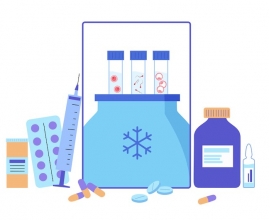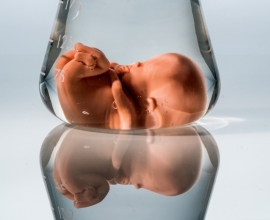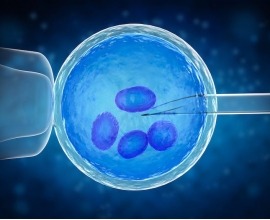Egg Donation Laws: the UK vs. the Czech Republic
If you’ve been thinking about traveling abroad for Egg Donation, you have probably become aware that there are significant differences in the law between the UK and other European countries. It is important to understand how these differences may impact you and your future family.
The biggest difference between UK and Czech law is that in the UK the donor’s information is held by the HFEA (Human Fertilisation and Embryology Authority) and the name of the donor and other identifying information such as last known address can be requested by the child once they are 18 years of age. It is possible for children to find other half-siblings from the same donor and for the donor to request information about if a child was born from their gamete donation.
In the Czech Republic, the donor must remain anonymous and identifying information isn’t accessible at any time to the child or parents alike, period.
For donors, the fact that their names are kept on record in the UK deters many from wanting to donate. Perhaps the thought of a young adult trying to find them in 18 years is intimidating because they themselves are not ready to be parents yet or because they have their own family units in tact.
The lack of donors causes the price in the UK to increase and can also be frustrating for women who do not have a lot of time to wait. Many couples opt for trying to find a donor to share with another couple looking for egg donation simply because there aren’t enough women willing to donate in the UK.
Because of the promise of anonymity in the Czech Republic, many more willing donors are found, providing couples with something they may not find in the UK: a choice among several women who are willing to donate. That choice, along with clinics that adhere to high standards such as Gynem Fertility Clinic in Prague, is why so many couples from the UK have decided to come to Prague for fertility treatment.
Here is a comprehensive comparison of differences between egg donation laws in the UK and the Czech Republic:
|
United Kingdom |
Czech Republic |
|
|
Anonymous or Known? |
Known - people born from donations have a right to ask for the donor’s identity when they are 18 or older. |
Anonymous - no way to track the donor’s name or information, however donors are extensively tested before donation can be carried out. |
|
Age of Donors |
18-35 |
18-35 |
|
Limitations on how many times / how often eggs can be donated: |
no more than 10 families should ever be created from any one egg donor. |
women should not donate eggs more than 3 times to a maximum of 5 times, however since there is no central database where donor’s information is kept, it is impossible for a clinic to know if a donor has already exceeded those numbers. Good clinics will certainly ask donors about their past donation history, however if the donor lies and says that they haven’t donated before, there is no way for the clinic to verify it. |
|
Screening of Donors |
Donors are extensively screened for STDs and their family’s medical history. They are counselled and advised of the medical procedures involved. |
Donors are extensively screened for STDs and their family’s medical history. They are counselled and advised of the medical procedures involved. |
|
Are Donors Compensated? |
Yes, up to £750 |
Yes, from £500 - £600 |
|
Information provided to you as a recipient upon donation |
Physical characteristics, ethnic background and any other non-identifying information the donor has consented to provide, such as interests, hobbies, etc. |
Physical characteristics, blood group, ethnic background, education, other non-identifying information the donor has consented to provide. |
|
Same sex partners or single women? |
It is possible for same sex partners or single women to receive egg donation. |
It’s not possible for same sex partners or single women to receive egg donation. |
|
Age limitation for treatment? |
no limitation, however the NHS will not pay for any IVF treatments past the age of 42. |
49 years |














